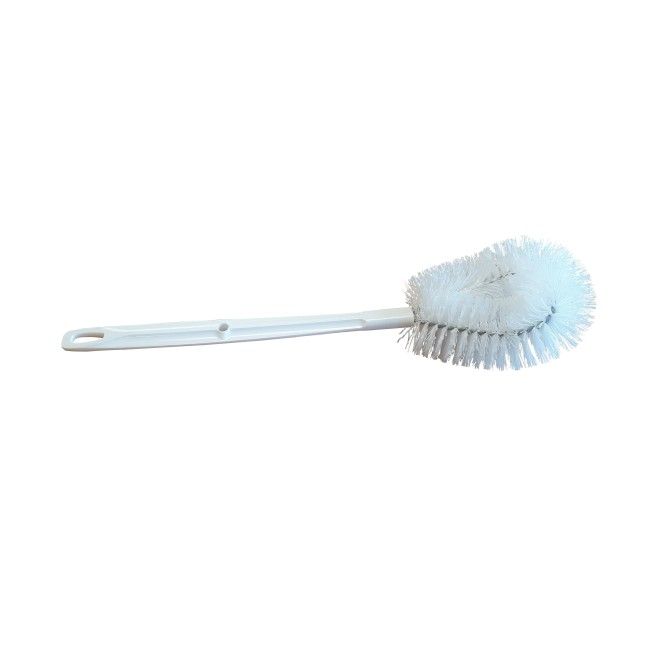



No returnable if used. For more information about our return policy, please refer to the Orders and Returns.
Scrubbing brush for asbestos remediation. This flexible handle brush features five rows of rigid polyester units as fill material. This tool is ideal for asbestos abatement of delicate areas such as valves with glove bags.
According to the Safety Code for the Construction Industry, chrysotile, amosite and crocidolite are the main types of asbestos found. Asbestos was a glorified material for its chemical and physical properties; it is as well a feared material for its pathogenic properties, hence the necessity to remove it properly.
The human health effects from long-term asbestos exposure are well documented, including asbestosis (a chronic disease) as well as lung cancer and mesothelioma (an aggressive form of cancer).
According to the ASP Construction (Health and Safety on Construction Sites) guide to the prevention on asbestos, the removal of this material on pipes shall be carried out using glove bags whenever the situation allows it.
Asbestos removal by the means of glove bags
Using a glove bag to remediate asbestos insulation on pipes as by far the most effective method. Indeed, processing asbestos with a glove bag means the job to be done poses a moderate risk regardless of the amount of junk created since the work zone is concealed and the respiratory zone is isolated.
Such a method prevents having to comply with many burdensome safety measures required whenever workers have to be exposed to a high-risk work site, in this case, a site where a volume of more than 0.03 m3 of debris will be generated.
This process enables one to remove the asbestos insulation on pipes by simply leaving it in a sealed bag be it on horizontal or vertical pipes of various sizes, on valves, on joints, etc.
Using the brush
Of course, one is required to wear safety clothing as well as respiratory protection—a half- or full facepiece mounted with high-efficiency filters if in the presence of chrysotile or a supplied air breathing apparatus or an airline breathing apparatus if in the presence of amosite and crocidolite. As for using the brush per se, one shall put it inside the glove bag prior to its installation on the pipe. This applies to all the tools required to fulfill the job. Once the insulation coating has been cut, the materials have been wetted and the insulation has been removed and left at the bottom of the bag, one must remove all remaining hazardous asbestos-containing materials by brushing the pipe off. For delicate jobs, the scrubbing brush is quite well-suited, since it has been designed for this purpose. For heavy-duty jobs, it is best recommended to use a scratch brush (see item (SAED6)) along with the scrubbing brush. Of course, any brush used to process asbestos, and any other tools, shall be decontaminated before being removed from the waste bag.
Data sheet
You might also like